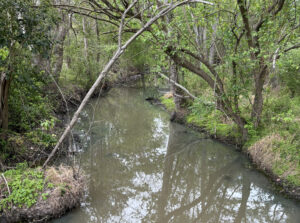News
Million-gallon spill: 4 years later, not much has changed
CAFOs, Environmental, Neuse River Watershed, Sound Rivers, Water Quality
Posted on September 2nd, 2021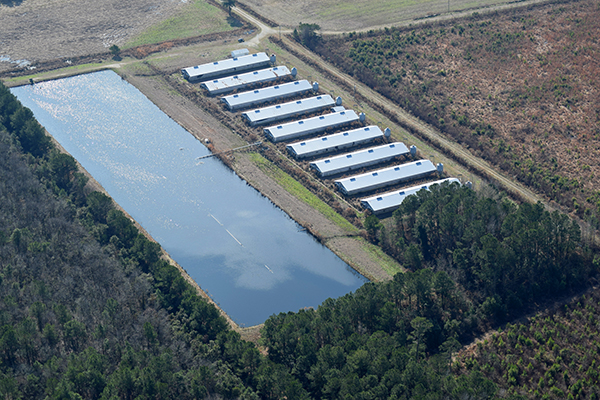

On Labor Day weekend of 2017, a hog waste spill at Lanier Farms in Jones County resulted in the largest civil penalty North Carolina Department of Environmental Quality had issued in at least six years — $64,000. The state stepped in, as did Smithfield Foods, when the international corporation yanked its hogs from the farm and ultimately severed its contract with the facility.
Four years later, the non-operational Lanier Farms is still accruing violations.
“There still has been no true enforcement on this facility,” said Lower Neuse Riverkeeper Katy Hunt. “You can’t just walk away from a lagoon. It’s still there. It’s still full of waste, and it’s not being managed, which is even more of a risk. When the lagoons hold too much, you run the risk of overtopping from a big rain event — and it’s hurricane season.”
In July 2020, and again earlier this year, DEQ issued multiple violations to Lanier Farms, including freeboard violations (the lagoon is too full), failure to properly maintain lagoon banks and failure to maintain adequate crops on sprayfields, meaning there is not enough foliage to prevent sprayed waste from pooling and/or flowing freely from the sprayfields — a requirement of every facility’s management plan. The owners of Lanier Farms were also cited in January 2021 for a separate spill at another of their facilities, D.C. Mills, on Dec. 21, 2021. That facility’s lagoon bank failed, sending another million gallons of hog waste into Tuckahoe Creek, also a tributary of the Trent River. Prior to these spills, DEQ had issued multiple notices of violation to both operations.
“It’s a story of bad actors and ineffectual regulatory authority,” Hunt said. “Notices of violation are a slap on the wrist, and a notice with intent to enforce with a civil penalty is little more than a slap on the wrist. … One of the big parts of the enforcement package after the Lanier spill was the owners had to obtain an NPDES permit, and, as of today, they still don’t have that.”
A National Pollutant Discharge Elimination System (NPDES) permit ups the requirements of a facility to sample its discharges and send results to DEQ and the EPA to make sure any discharge doesn’t harm water quality or people’s health. According to Hunt, the Lanier Farm owners claim their NPDES permit application was lost by the state.
“They’re not doing what’s required as far as the NPDES permit and not even maintaining what’s there,” Hunt said.
The original Lanier spill was reported on Aug. 31, 2017, by a neighbor who noticed the smell of waste and a discolored stream flowing beneath a road.
“There was evidence that a hose was removed from a sprayer and moved toward this wooded area and allowed to free flow. Except in that wooded area, the waste found this ephemeral streambed that flowed into a creek, which flowed into the Trent River,” Hunt said.
At the time, DEQ investigators followed the trail of pink-colored wastewater 1.8 miles to the Trent River. Though owners claimed the spill was a sprayer malfunction, DEQ determined it was an intentional discharge. Today, the facility remains a potential threat to water quality.
“My understanding is that DEQ’s lawyers are now getting involved in the continued enforcement of the facility,” Hunt said, adding that the process has moved too slowly, bogged down by a limited DEQ budget which has led to understaffing and not enough resources — and polluters not being held accountable.
“These are important things that need to be addressed right away, and you can’t just let it go after four years of inaction,” she said.
Related News
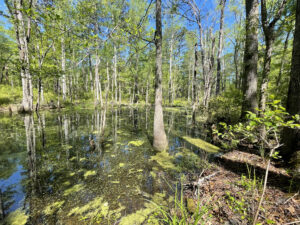
Tell NC to restore wetlands protections!
April 19th 2024
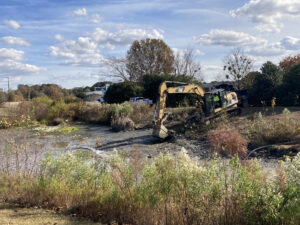
Position available: Stormwater Education Coordinator
April 18th 2024
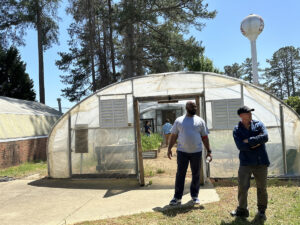
Southern Nash next in line for stormwater projects
April 18th 2024
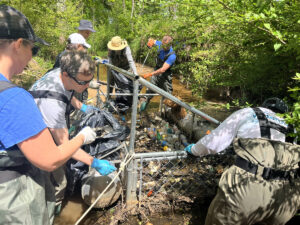
Xylem, Sound Rivers team up for cleanup
April 18th 2024

Sound Rivers launches new podcast
April 18th 2024
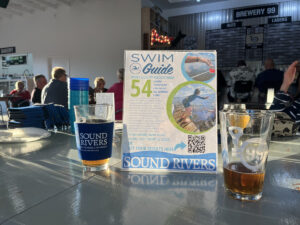
Swim Guide gearing up for a seventh season
April 11th 2024
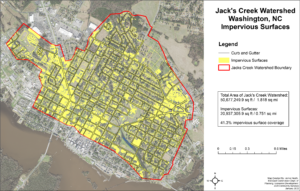
Feedback needed for Jack’s Creek plans, projects
April 11th 2024

Pamlico-Tar Riverkeeper talks water quality
April 11th 2024
